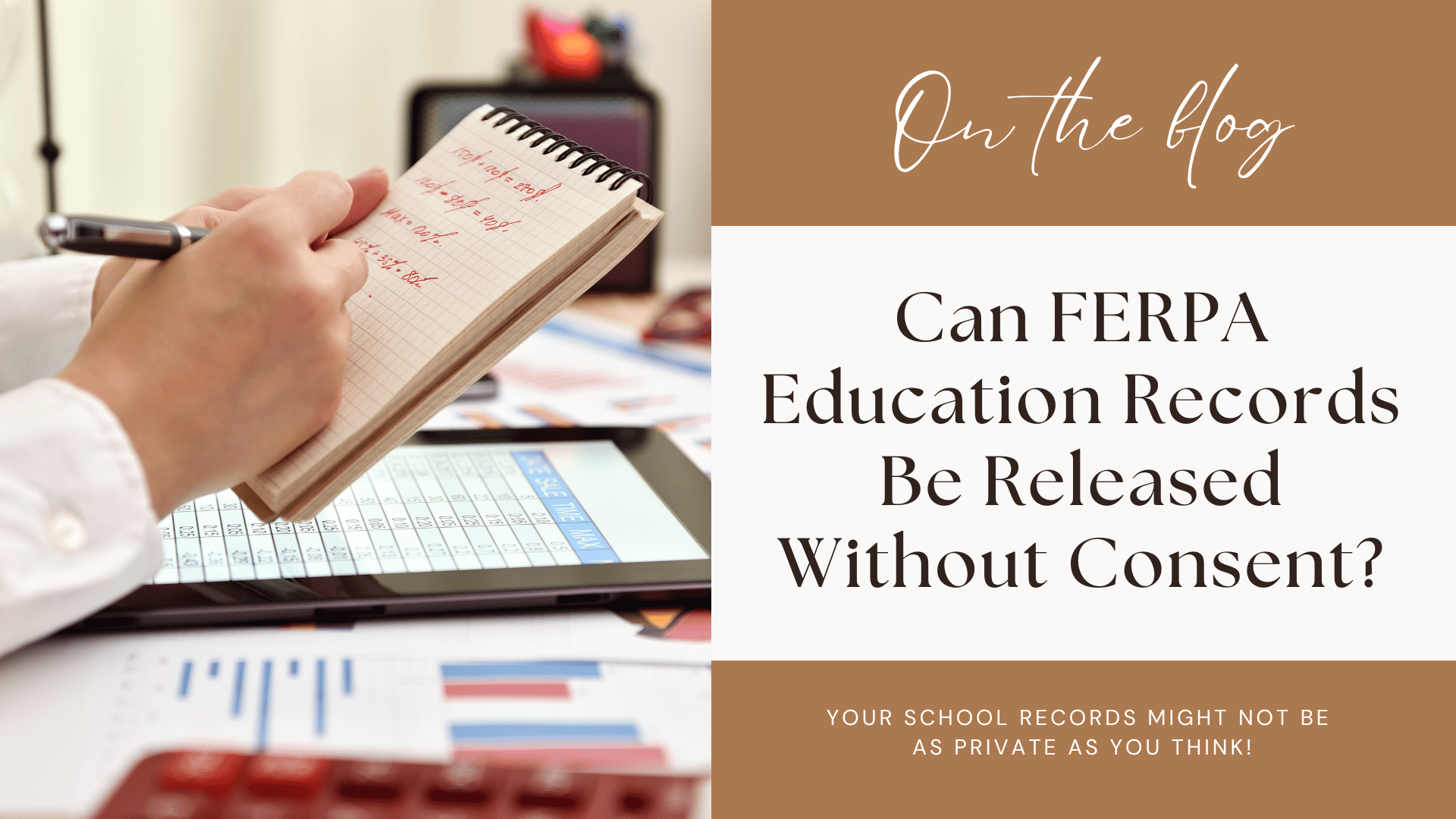Your school records might not be as private as you think.
While FERPA (Family Educational Rights and Privacy Act) generally protects student records, there are exceptions where schools can share your information—without asking for your consent. For example, if you’re under 21 and there’s a safety concern, your school can notify the necessary parties. Similarly, if officials need your records for educational purposes, they can access them legally. These exceptions are designed to balance privacy with practical needs, but understanding them is key.
So, when can your records be released? Let’s break it down.
Understanding FERPA
FERPA, or the Family Educational Rights and Privacy Act, is a federal law that safeguards the privacy of your educational records. Think of it as a set of rules that gives you control over your school records while setting clear guidelines on when they can be shared without your permission.
At its core, FERPA ensures that your personal academic information—like grades, transcripts, and disciplinary records—doesn’t end up in the wrong hands.
But while these protections are strong, they aren’t absolute. Certain conditions allow schools to disclose your records, even if you haven’t given the green light.
Rights and Privacy Under FERPA
One of the most important rights FERPA gives you is the ability to review your own educational records.
You can check your grades, transcripts, and even disciplinary files. And if something looks off? You can request corrections so that mistakes don’t impact your academic standing.
Privacy is another big piece of the puzzle. Schools must protect your records from unauthorized access. Even faculty and staff aren’t allowed to dig through your information unless they have a legitimate educational reason—meaning they need the data to do their job.
But knowing your rights is just the first step. The more you understand how and when your records can be shared, the better you can protect your personal information throughout your academic journey.
Conditions for Release Without Consent
Under FERPA, there are specific situations where your education records can be shared without your permission. While this might sound concerning, these exceptions exist for practical reasons—often to ensure student success, safety, or compliance with the law.
Understanding these conditions can help you know when and why your information might be disclosed.
School Officials With Legitimate Educational Interest
Schools are allowed to share student records with officials who have a legitimate educational interest—meaning they need access to do their jobs effectively.
This could include teachers, counselors, administrators, or other school staff involved in your education. For example, a teacher might need to review a student’s grades to identify learning gaps and offer extra support. A college advisor may access records to ensure a student is on track for graduation. Even a financial aid officer might need enrollment details to process scholarships.
In all cases, the key factor is necessity—records should only be accessed when truly required.
Important Points:
- Access is strictly limited to those directly involved in the student’s education.
- Information cannot be shared freely—it must be essential for the official’s role and duties.
Health and Safety Emergencies
In emergencies, immediate action is more important than paperwork.
Schools can share education records without consent if doing so helps protect a student’s health or safety. These situations include medical crises, serious threats, or campus-wide emergencies where quick decisions are critical.
For instance, if a student loses consciousness on campus, school officials might need to share medical history with first responders.
If a student makes threats of self-harm, the school may notify parents or mental health professionals to intervene.
The goal is simple: prevent harm and provide help when it’s needed most.
Important Points:
- Schools can disclose records when there’s an immediate threat to health or safety.
- Information is shared only with those who need it to handle the emergency.
Directory Information Exceptions
Unlike private records, “directory information” is considered general student information that schools can share without needing consent—unless students or parents opt out.
This can include details like your name, address, phone number, major, and enrollment status.
Think of it this way: when universities publish graduation lists or sports rosters, they often rely on this provision. However, students have the right to limit what’s shared.
Schools must notify students and parents about what qualifies as directory information so they can choose whether to keep it private.
Important Points:
- Students and parents can opt-out of having directory information shared.
- Schools must provide clear notice on what they consider directory information.
Law Enforcement and Legal Requests
When law enforcement requests student records, FERPA allows certain disclosures without consent.
These situations can feel complicated, but they follow strict legal procedures. Understanding when and why schools may release records—especially in cases involving judicial orders and ex parte requests—can help you stay informed about your rights.
Judicial Orders and Subpoenas
If law enforcement secures a judicial order or subpoena, schools are legally required to comply.
This means that under FERPA, student records can be released when there’s a formal legal demand for information.
A judicial order requires a court’s approval, meaning law enforcement must present a valid reason for requesting the records. These requests are often tied to ongoing investigations, court cases, or legal disputes.
Similarly, a subpoena is a legal document that may require schools to provide specific student records.
When responding, schools must follow legal guidelines carefully—balancing compliance with their responsibility to protect student privacy whenever possible.
Ex Parte Orders for Investigations
An ex parte order works differently. Unlike a standard subpoena, this type of legal request allows law enforcement to access student records without notifying the student or their parents.
Why? Because ex parte orders are typically issued in urgent or sensitive cases—for example, when informing the student could jeopardize an ongoing criminal investigation. Schools must immediately comply while ensuring they follow legal protocols.
It’s a delicate balance: cooperating with law enforcement while safeguarding student rights.
To maintain transparency, schools should document all requests and responses carefully. This helps ensure accountability and compliance with both FERPA and the law.
Post-Secondary Education Considerations
As you move through college, understanding how FERPA applies to your records is crucial—especially if you’re transferring schools or continuing your education elsewhere.
There are certain situations where your records can be shared without your consent, and knowing how this process works can help you stay informed.
Transfer of Records to Other Institutions
Under FERPA, schools can send your education records to another institution if you plan to enroll there.
This means that when you transfer to a new school, your records—like transcripts, disciplinary history, and academic progress—can be sent directly without needing your approval.
Unlike in high school, where parental consent may have been required, this process shifts control to you as a student. Once you’re in college, your academic records become your responsibility.
Here are some key things to keep in mind:
-
Your education records include grades, transcripts, and disciplinary records.
-
Policies may vary between schools, so check with both your current and future institution to understand how they handle record transfers.
-
Being aware of your rights can help you stay on top of your academic journey and ensure there are no surprises when switching schools.
This record-sharing process ensures a smooth transition, allowing your new school to have the necessary information to support your academic success.
If you’re ever unsure about what’s being shared, asking questions and staying informed is always a smart move.
Parental and Student Rights
FERPA gives you important rights when it comes to your education records—from requesting changes to incorrect information to understanding when your records might be shared with your parents.
Knowing these rights puts you in control of your own academic history.
Requesting FERPA Record Amendments
Ever spotted an error in your school records? Maybe your transcript lists the wrong grade, or a disciplinary note was added by mistake.
Under FERPA, you have the right to request a correction if you believe something is inaccurate or misleading.
Here’s how it works:
- Write to the school official responsible for maintaining the record.
- Clearly explain the issue—what’s incorrect, why it matters, and how it should be fixed.
- Provide any supporting evidence to back up your request.
Once you submit your request, the school will review it. If they agree, they’ll correct the record.
If they don’t, they must inform you of your right to a formal hearing—essentially giving you a chance to argue your case. Either way, FERPA ensures your concerns are taken seriously.
Disclosure of Records to Parents
One big question many students have is: Can my parents see my records?
The answer depends on your age and status.
If you’re under 18 or still considered a dependent for tax purposes, your school can share certain records with your parents—like grades, attendance, and disciplinary actions—without your consent.
However, schools typically notify students when this happens. If you’re 18 or older, you have more control—your parents can’t access your records unless you give written consent.
Pro Tip: If you want to keep your parents informed but still set boundaries, have an open conversation about what they can and can’t access. It helps avoid surprises and keeps everyone on the same page.
Staying FERPA-Compliant with EduTranscript
Let’s be honest—handling student transcripts isn’t just a paperwork chore. It’s a responsibility.
One small mistake—a missing course, a wrong grade, a misplaced record—can cause serious headaches for students and staff alike. Add FERPA compliance into the mix, and suddenly, managing education records feels like walking a tightrope.
That’s where EduTranscript comes in.
This platform isn’t just another digital filing system—it’s a FERPA-friendly transcript management tool that helps universities keep records accurate, secure, and accessible without the usual administrative chaos.
How EduTranscript Makes Compliance Easier
Under FERPA, student records require strict handling—from ensuring only authorized individuals can access them to preventing unauthorized changes.
EduTranscript takes these concerns off your plate by automating security and compliance measures.
Think of it like a digital safe for transcripts—only the right people can get in, and everything inside is protected from tampering.
Key features that keep universities FERPA-compliant:
-
ID-Based Tagging: No more accidental access. Only authorized school officials, students, or institutions can view specific records.
-
Digital Cryptographic Signatures: Keeps transcripts tamper-proof, so what’s on record stays legitimate.
-
OTP Verification: Adds an extra layer of protection, preventing unauthorized individuals from viewing sensitive information.
Why This Matters for Students and Universities
At its core, FERPA is about trust.
Students trust that their records are handled with care. Schools trust that their systems protect private data. And EduTranscript helps uphold that trust—without adding extra administrative stress.
With compliance taken care of, universities can focus on what really matters: supporting students, not getting buried in paperwork.
Conclusion
Navigating FERPA’s rules on education records can feel overwhelming, but at its core, it’s about protecting student privacy while ensuring institutions can function smoothly.
Whether it’s law enforcement requests, parental access, or transferring records between schools, understanding when consent is required—and when it isn’t—helps you stay informed. For students, this means knowing your rights. For university staff, it’s about handling records responsibly and staying compliant.
Of course, managing transcripts while staying FERPA-compliant isn’t easy—especially when dealing with thousands of records and legal nuances. Mistakes in record-keeping can lead to confusion, delays, and even legal trouble.
That’s why having a secure, efficient system in place is a must, not a luxury. The right tools make all the difference, helping schools stay organized while safeguarding sensitive student data.
If you’re looking for a simple, secure way to manage student transcripts without the compliance headaches, EduTranscript is worth checking out. With built-in security, automation, and easy access controls, it keeps records safe while streamlining administrative work. Why struggle with outdated systems when there’s a smarter way to handle transcripts?
Book a demo call today and see how EduTranscript can make transcript management with FERPA compliance effortless.
.png)
 Author :
Author : 




